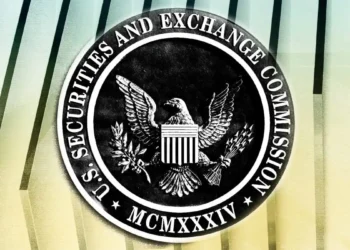Hong Kong’s financial authorities are taking proactive steps to establish comprehensive regulations for the stablecoin market by the end of 2024.
The Hong Kong Monetary Authority (HKMA) recently completed a public consultation aimed at gathering feedback and proposals on stablecoin regulations. The consultation focused on key areas such as issuance, governance, and stability of stablecoins.
Joseph Chan Ho-Lim, deputy director of the Hong Kong Financial Services and Treasury Bureau, emphasized the city’s growing popularity among fintech companies over the past five years. He also underscored the government’s commitment to promoting the Web 3 ecosystem while prioritizing investor safety.
In January 2022, Hong Kong initiated measures to impose restrictions on stablecoins, with the HKMA releasing a list of eight questions to solicit suggestions for policy changes. The list included potential regulatory outcomes such as no action, an opt-in regime, a risk-based regime, a catch-all regime, or a blanket prohibition. However, following the Terra-Luna incident, algorithmic stablecoins were explicitly prohibited in regulatory discussions.
Hong Kong has also distinguished itself from its more cautious Western counterparts by leading the way in cryptocurrency regulation. This year, the HKMA introduced a licensing framework for cryptocurrency exchanges, imposing stringent anti-money laundering laws while enabling everyday traders to engage in cryptocurrency trading.
In contrast, the United States House Committee is currently working on imposing stricter regulations on the stablecoin industry. Three draft stablecoin laws have been introduced, with the latest proposal granting significant authority to the Federal Reserve and some flexibility to state authorities.
Meanwhile, the US Securities and Exchange Commission (SEC) has filed a complaint against Binance and its Paxos-issued BUSD Stablecoin, accusing the stablecoin issuer of violating securities laws. These legal actions highlight the increased scrutiny and potential legal challenges faced by stablecoin issuers in the US market.
These divergent regulatory approaches have significant implications for the stablecoin industry. The US regulatory initiatives may potentially push established enterprises, including stablecoin issuers, to seek opportunities elsewhere. In contrast, Hong Kong policymakers are actively positioning the city as a cryptocurrency hub, attracting businesses and fostering innovation.
As Hong Kong moves forward with its plans to establish clear stablecoin regulations, it aims to provide a transparent and supportive environment for the cryptocurrency industry. The city hopes to solidify its position as a global leader in the digital asset space while ensuring investor protection and fostering innovation in the fintech sector.
If you want to read more news articles like this, visit DeFi Planet and follow us on Twitter, LinkedIn, Facebook, Instagram, and CoinMarketCap Community.
“Take control of your crypto portfolio with MARKETS PRO, DeFi Planet’s suite of analytics tools.”




















